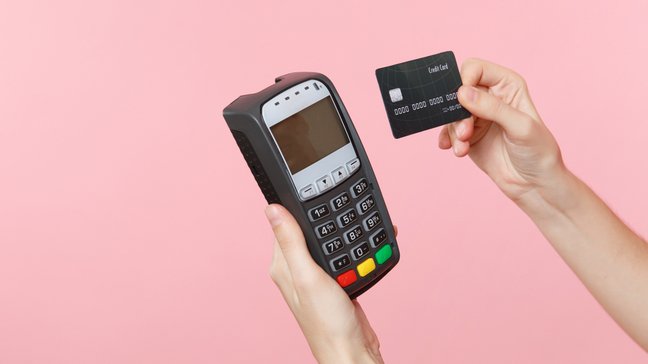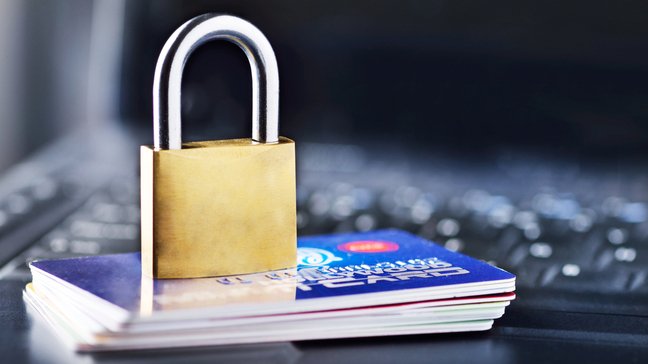Oh, to be 18 again! Young, vibrant, and ready to conquer the world. But, at 18, most of us are not well versed in the importance of credit history.
At 18, I had never taken a school course on personal finance or economics. It wasn’t even offered as an option in high school. I had never uttered the words “credit history,” had limited knowledge about what it was, and no idea of its importance.
However, my parents did encourage me to get a credit card when I went to university. They also taught me the importance of not spending beyond my means and always paying my credit card off in full each month. I was lucky to get this advice.
Over the course of my first year of university, I watched several of my friends go into considerable credit card debt with their first credit cards.
Maybe their parents didn’t give them the same advice, or maybe they ignored it, but they treated their credit cards as if they had just found free money. Trips to Mexico and bottomless beer nights were put on their credit cards with no plan for how they would pay that money back.
These friends were largely unaware of the insane amount of interest they would be charged for unpaid credit card bills and of the long-term impact it would have on their credit.
Why is it important to start building your credit as an 18 to 21-year-old?

Establishing good credit when you are young can help you for the rest of your life. A solid credit history can be used to finance a car, get a mortgage, or take out a personal loan. Anytime you need to borrow money from a bank or financial institution they are going to take your credit into account.
Having a long and strong credit history can result in you getting a larger loan at a lower interest rate.
However, getting a credit card or line of credit when you are young and then abusing this credit – not paying your credit card on time or in full, missing payments, wracking up multiple credit cards, or having your account sent to collections – can create long-term financial problems. These missteps will stay visible in your credit history for seven years.
The good news – if you make a mistake when you are 18 or 19 years old, that blip can be removed from your credit history by age 25 or 26. However, if you learn how to use credit responsibly when you’re young, you can build a strong credit score.
How can you start building your credit?

Okay, so you know credit is important but, how do you start building it?
Become an authorized user
Before you venture out into the unknown land of credit on your own, you can start your credit journey as an authorized user on a family member’s credit card. You can ask your parents to add you as an authorized user on their credit card. Then you will receive a credit card with your name on it that is linked to your parents’ account. This credit card account will be added to your credit report as if it was your own account.
Assuming the primary account holder makes all of their payments on time, you can begin to build your credit. However, if the primary account holder isn’t making their payments on time and is making irresponsible decisions, this can hurt your credit. If this happens, you can dispute the account and ask the creditor to remove the account from your credit report because you are not the one responsible for making payments.
Bottom line, before you ask to become an authorized user, confirm that the primary account holder is a responsible credit card user.
Get a credit builder loan
If you have a credit card you could look at diversifying with a credit builder loan. As the name suggests, a credit builder loan is available to help establish or repair credit. The goal of a credit builder loan is to help you improve your credit score. Unlike a regular loan where you are given a lump sum of money and then required to pay it back with interest, a credit builder loan functions differently.
In this case, the money you want to borrow will be set aside into a savings account while you work towards paying off the loan. Once you have made all of your monthly payments and the loan is completely paid off (with interest), then you can access the money. The lender will report your monthly payments to the credit agencies (Equifax, Experian, and TransUnion) to help you establish your credit. Credit builder loans are usually for a small sum of money ($1,000 and under).
Self is a great example of a credit builder loan. You’ll start by paying a $9 one-time administrative fee to take the loan, but after that, you’ll choose your monthly payment amount ranging from $25 to $150*. You can choose a term of one to two years, and at the end of that term, you’ll have a loan you’ve already paid off!
Keep your credit utilization ratio low
While the gold standard of credit card use is to pay your bill in full each month, this isn’t always possible. If you can’t make your full payment you still want to ensure that you maintain a low credit utilization ratio. What does this mean?
Your credit utilization ratio is the amount of credit you are using (your credit card balance) divided by the total amount of credit you have available. So, if you have a balance owing of $500 on a credit card with a total limit of $1,000 then you have a utilization ratio of 50%.
Many experts advise that you keep a credit utilization ratio below 30% to keep a healthy credit score. If you’re aiming for an excellent credit score, you should keep it below 10%.
Set up automatic payments
Once you have a credit card you must make your payments on time. Missing a credit card payment can result in extra fees, a ding to your credit score, or even worse, it could end up going to collections.
You can sign up for autopay through your bank. You decide how much money you want to come out of your checking account each month to be put onto your credit card balance.
Diversify your credit
Diversification is a key ingredient in many financial recipes including investing and credit building. While having a credit card is a great way to start building credit, diversifying your credit will help you strengthen your credit even faster.
The diversification of credit is referred to as a “credit mix” for those in the biz. Credit mix simply refers to the different types of credit that you hold (credit cards, student loans, personal loans, etc.). Having a diversified credit mix is one thing that creditors look at, and they like to see that you can effectively manage a variety of credit accounts over time.
Check your credit score regularly
To confirm that your credit score is trending in the desired direction, you should be monitoring it on a regular basis. Checking your credit score is free and doesn’t impact your credit. It’s also a good way to protect yourself against credit card or identity theft.
You are entitled to a free credit report from each of the three credit reporting agencies (Experian, Equifax, and TransUnion). To request your free credit report online you can visit AnnualCreditReport.com. You can also monitor your credit score with a free app like Sofi’s Financial Insights Tools. The tools by SoFi are some of our favorites.
Get a starter credit card
A starter credit card is specifically designed to help people with limited credit become more established. Starter credit cards provide training wheels or special features to help novice credit users build good credit card habits. Some of these features include:
- No annual fee.
- Waived late-fees.
- No foreign transaction fee.
However, because credit card companies are taking a risk on young people or those with no to limited credit history, starter cards also come with:
- High-interest rate.
- Low credit limits.
- Limited rewards.
Building credit with a credit card

Why you should consider building your credit with a secured credit card
Secured credit cards are a great option for young people or anyone who doesn’t have a credit history. A secured credit card functions like a regular credit card however, you’re required to pay a security deposit upfront.
By providing this deposit, you reduce the risk to the creditor which is why secured credit cards are easier for people with limited credit to obtain. This way, if you default on a payment, the lender has collateral in hand.
The security deposit will typically be one or two times the amount of the credit limit. Compared to an unsecured credit card, a secured credit card typically has a lower overall limit and higher associated fees.
If you’re interested in building your credit with a secured credit card, here’s a great option.
With an OpenSky® Secured Visa® Credit Card there is no credit check required for approval. You can apply if you have zero credit or bad credit.
You also get to set your own credit limit, based on how much you decide to put down for your refundable deposit. The minimum deposit is $200 all the way up to $3,000 (subject to approval).
One thing to note about the OpenSky® Secured Visa® Credit Card is that there is an annual fee of $35. With no rewards, the annual fee is kind of a bummer, but you can graduate to a higher-tier rewards card after you build up your credit score.
Why you should consider building your credit with an unsecured credit card
An unsecured credit card is a regular credit card. An unsecured credit card comes with some additional benefits but is more difficult for someone without any credit to obtain.
The main difference between a secured and unsecured credit card is that an unsecured credit card does not require any collateral. You don’t have to provide a deposit to obtain it. However, this means there is more risk involved for lenders. As a result, it can be more difficult for someone with no credit or poor credit to get an unsecured credit card, and the credit cards can be less favorable (higher interest, smaller credit limit, fewer perks).
There are several benefits associated with using an unsecured credit card to build your credit including:
- More credit card options. An unsecured credit card simply offers more options than a secured credit card.
- More reward options. With more credit card options come more rewards options.
- Higher credit limit. A higher credit limit can be a double-edged sword. More credit helps to fund bigger purchases however, this can get you into trouble if you aren’t a responsible credit user. The benefit of a larger limit is that it can reduce your credit utilization ratio.
- Lower APR. To get an unsecured credit card, you have to have a positive credit history and a fair credit score. The higher your score, the better your interest rate. Secured credit cards have high APRs because lenders are taking a risk giving money to someone without any credit history.
If you’re interested in rebuilding your credit history with an unsecured credit card but you have less than stellar credit, here’s an excellent option.
The Indigo® Mastercard® Credit Card, for example, is designed for those with “less than perfect credit.” So, if you’ve made a few mistakes in the past, all is not lost.
With the Indigo® Mastercard® , your card payments are reported to all of the three major credit bureaus each month, which can help you build up your credit history fairly quickly.
The Indigo® Mastercard® Credit Card is an unsecured card, so there is no deposit required and the annual fee is based on your credit profile, and ranges from $0 – $99.
The quickest ways to build credit vs. the best ways as an 18 to 21-year old

If you are in a mad rush to build your credit as soon as possible, there are some specific actions you can take. These include:
- Never missing a bill payment. Your payment history is one of the most important metrics used to calculate your credit score. When you miss a payment this can stay on your record for up to seven years.
- Making frequent payments. Making multiple payments per month can help to prevent your balance from ever getting too high and can help to lower your credit utilization.
- Ask to increase your credit limit. An increase in your credit limit can automatically improve your credit utilization. Your overall credit limit will increase while your balance stays the same resulting in lower credit utilization. Before you do this confirm that you can increase your limit without a hard credit inquiry as this can cause your score to drop.
- Dispute any issues. By keeping a close eye on your credit score, you can identify if any errors have been reported. If you see an error on your report be sure to dispute it as soon as possible. If the error is removed this can help to quickly improve your credit.
Summary
A solid credit history can help you to achieve many future financial goals more easily – from obtaining a car loan to a mortgage for your dream home. By signing up for a starter card or asking your parents to become an authorized user on their credit card, you can start building your credit history and set the foundation for a strong financial future.
Self Disclosure: Self Financial compensates us when you sign up for Self Financial using the links provided. All Credit Builder Accounts made by Lead Bank, Member FDIC, Equal Housing Lender, Sunrise Banks, N.A. Member FDIC, Equal Housing Lender or Atlantic Capital Bank, N.A. Member FDIC, Equal Housing Lender. Subject to ID Verification. Individual borrowers must be a U.S. Citizen or permanent resident and at least 18 years old. Valid bank account and Social Security Number are required. All loans are subject to ID verification and consumer report review and approval. Results are not guaranteed. Improvement in your credit score is dependent on your specific situation and financial behavior. Failure to make monthly minimum payments by the payment due date each month may result in delinquent payment reporting to credit bureaus which may negatively impact your credit score. This product will not remove negative credit history from your credit report. All loans subject to approval. All Certificates of Deposit (CD) are deposited in Lead Banks, Member FDIC, Sunrise Banks, N.A., Member FDIC or Atlantic Capital Bank, N.A., Member FDIC.